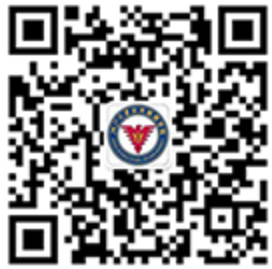More than 40 experts and scholars attend the seminar. They are from Zhejiang University, Shanghai Jiaotong University, Wuhan University, Shanghai University of Finance and Economics, Shanghai University of International Economics and Economics, Northeast Agricultural University, Ningbo University, Shandong Agricultural University, Inner Mongolia Agricultural University, Chinese Academy of Agricultural Sciences, Agricultural and Rural Bureaus in Jiyuan Demonstration Area, the People's Insurance Company of China, Taiping property Insurance Co., Ltd., Central Plains Agricultural Insurance Co., Ltd., Anxin Agricultural Insurance Co., Ltd (Zhejiang Branch), and other universities and research institutes.
Professor Zhang Yuehua, Deputy Director of the Research Center for livelihood Security and Public Governance of Zhejiang University, hosts the opening ceremony.
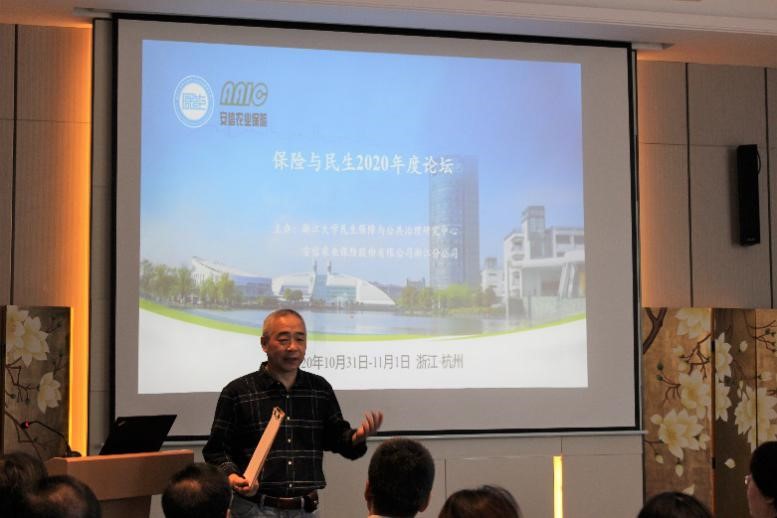
Professor Zhang Yuehuahosting the opening ceremony
Professor He Wenjiong, director of the Research Center for Welfare Protection and Public Governance of Zhejiang University, delivers an opening speech representing the host unit. He points out that the forum aims to provide an in-depth cooperation and research platform for outstanding scholars in China in the discussion of commercial insurance, agricultural insurance and social insurance. He wishes that academia, business and governments can promote the development of China's insurance economics together.
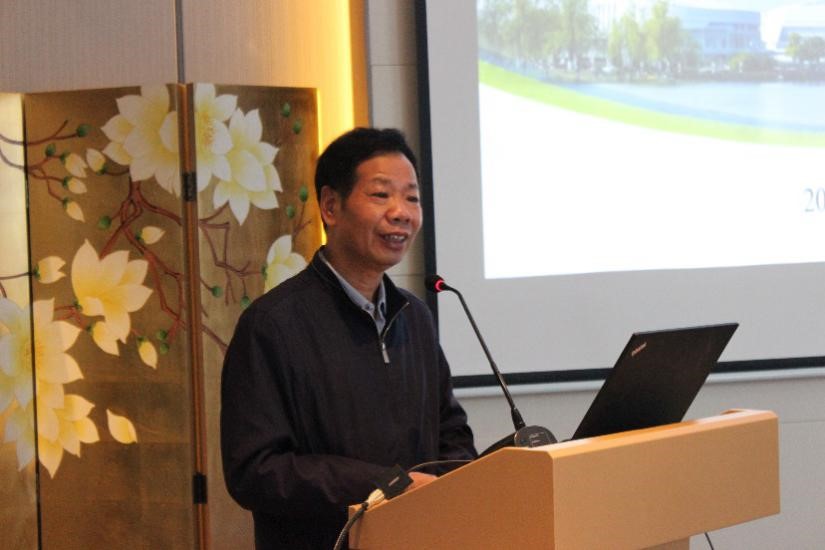
Professor He Wenjiong addressing a speech
Professor Chen Shengwei from Shandong Agricultural University hosts the seminars in the morning.
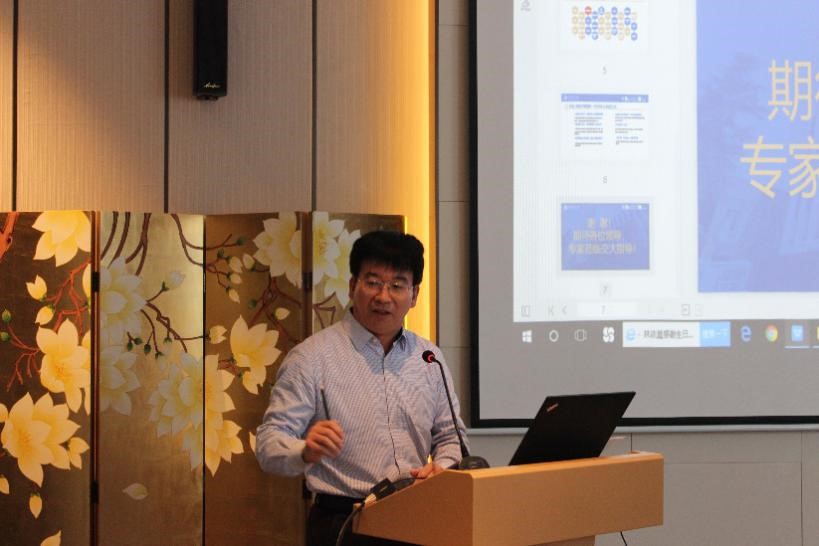
Professor Chen Shengwei hosting the seminars in the morning
Professor Wang Changwei from Shanghai University of Finance and Economics introduces the basics of the agriculture and agricultural insurance in Shanghai. He analyses the COVID-19’s impact on farmers' income from the perspective of agricultural products’ production, circulation, and sale, focusing on farmers' demands for agricultural insurance and the current system’s shortcomings. He proposes that the current agricultural insurance system needs to be improved in terms of the compensation rate of agricultural insurance, the instruction of financial funds, the operation mechanism of agricultural insurance, and the service efficiency of agricultural insurance.
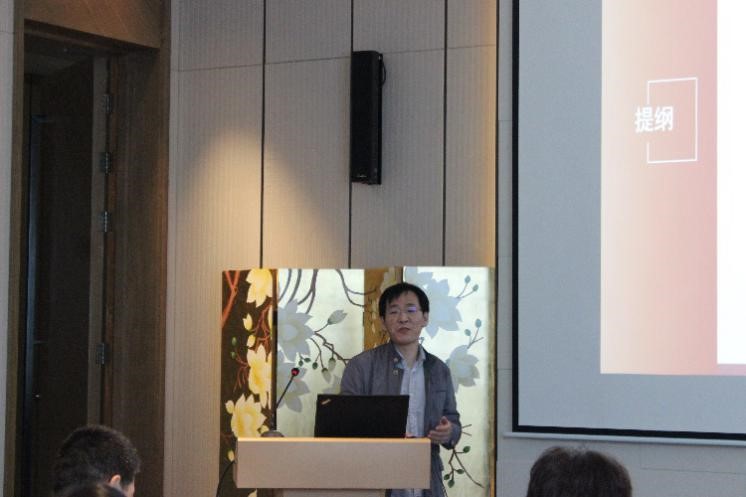
Professor Wang Changwei speaking
Wang Ke, a research fellow at the Institute of Agricultural Information, delivers a presentation on the lack of endogenous strength of agricultural insurance, the ambiguity of the boundary between the government and the market, and the frequent occurrence of improper government intervention. He further tests whether market forces play a role in the agricultural insurance market and finds that the market is currently not the main driving force for the development of agricultural insurance in China. Based on this, he suggests to increase the marketization of the agricultural insurance market and optimize the basic system of agricultural insurance supervision.
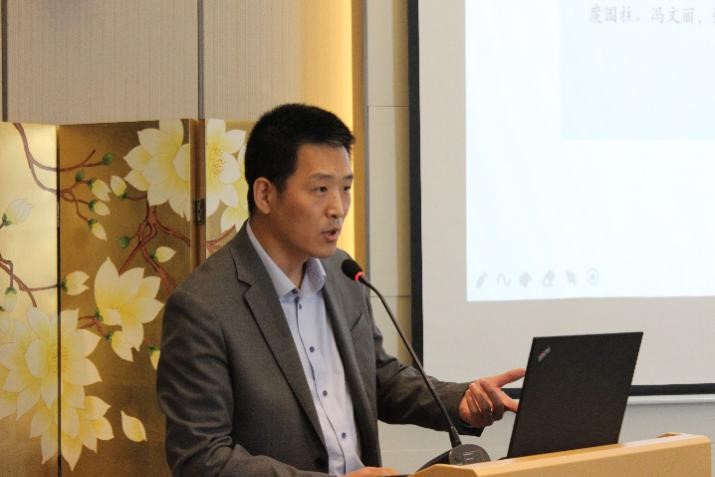
The research fellow Wang Ke speaking
Dang Wujun, the deputy director of the Agricultural and Rural Bureau of Jiyuan demonstration Zone of Henan Province, introduces the Jiyuan model in the development of animal husbandry. This model aims to promote local husbandry by stimulating farmers’ enthusiasm with agricultural insurance. At the same time, the model aims to protect the industry from the influence of COVID-19.
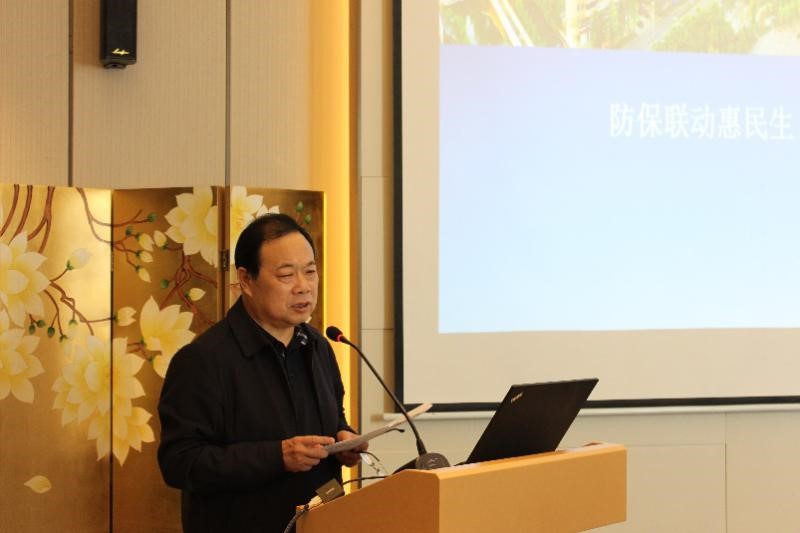
The deputy director Dang Wujun speaking
Associate Professor Pan Guochen from Wuhan University uses a spatial model to explore the impact of insurance agglomeration on the development of local insurance industry and the effect of knowledge spillover of insurance industry to neighboring regions. He finds that an increase in the number of insurance companies would not only translate into the development of the insurance industry in this region, but also have a positive spillover effect on the insurance development of neighboring regions due to knowledge spillover.
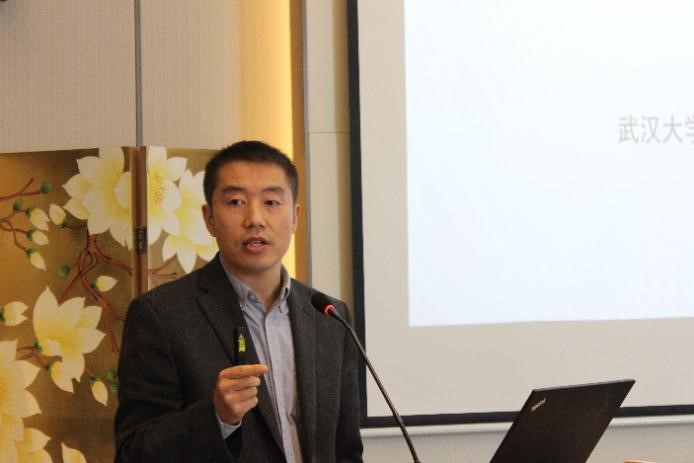
Associate Professor Pan Guochen speaking
Professor Qiu Bo from Ningbo University hosts the meeting in the afternoon.
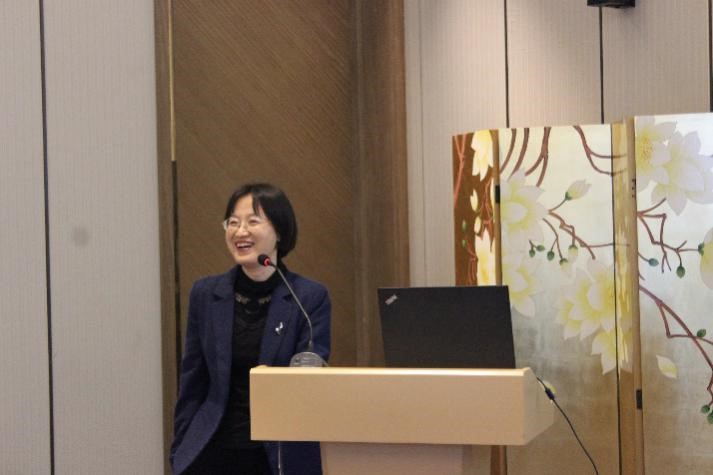
Professor Qiu Bo hosting the meeting in the afternoon
Professor Guo Zhenhua from Shanghai University of International Business and Economics introduces his forthcoming book Behavioral Insurance Economics. He points out that the rationality assumption held by the modern insurance economics are flawed. To create a more effective theory, he calls for an integration of psychology & behavioral economics, insurance decision-making theory, and insurance management decision-making theory. As a demonstration, his book includes the behavioral insurance demand theory of indemnificatory insurance and savings insurance, the behavioral economics of the insurance market, the explanation of the anomalies of the insurance market, and so on.
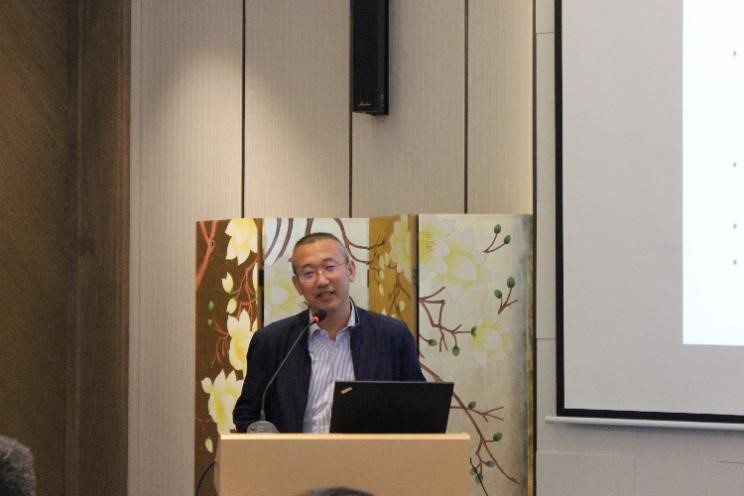
Professor Guo Zhenhua speaking
Professor Chen Shengwei, dean of the School of Economics and Management of Shandong Agricultural University, speaks on the modernization of agricultural development with a focus on the symbiotic relationship between agricultural insurance and agricultural modernization. He points out that such symbiotic relationship affects the allocation of resources and the realization of Pareto optimality, and that the way to raise the standard, expand the scope and increase the products of agricultural insurance should depend on the requirements of agricultural modernization.
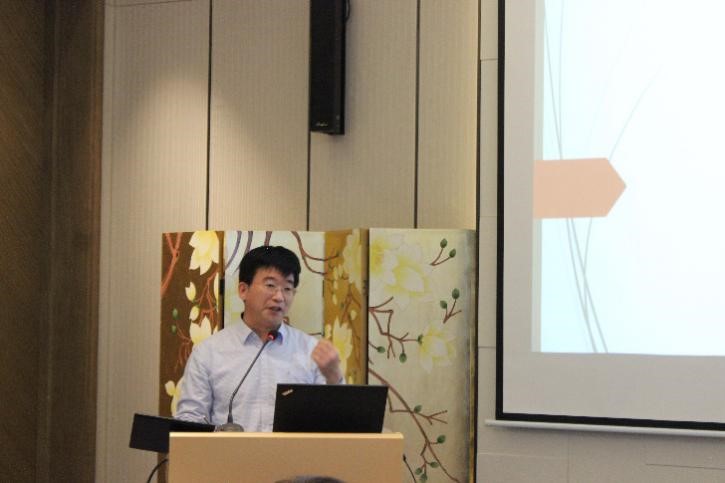
Professor Chen Shengwei speaking
Professor Li Dan, from School of Economics and Management, Northeast Agricultural University, analyzes the four ways (policies, subsidies, market supervision, and other assistance to insurance enterprises) in which governmental behaviors should influence agricultural producers with a field survey data from 2016 to 2018. She then puts forward some policy suggestions for the optimization of government behavior in the agricultural insurance market.
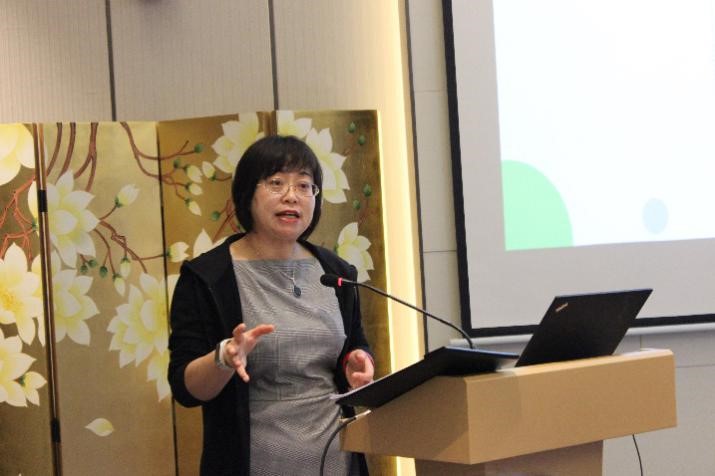
Professor Li Dan speaking
Professor Zhao Yuanfeng from Mongolia Agricultural University presents a report on An Analysis of Pastoral Households’ Procurement Behaviors on Weather Index Insurance for grassland Animal Husbandry with a survey data of 550 pastoral households in Xilinguo League of Mongolia Autonomous region. Through the analysis of the characteristics of the behaviors of herdsmen purchasing mutton sheep weather index insurance, she identifies four important factors affecting herdsmen's purchase in insurance: their understanding of the insurance terms, the advertisement methods of insurance providers, neighbors' purchase of the insurance, and herdsmen’s production capacity. She further calls for attention to herdsmen with strong land resource endowment and a low number of sheds, and appeals for the innovation on the promotion methods of mutton sheep weather index insurance to strengthen infrastructure construction.
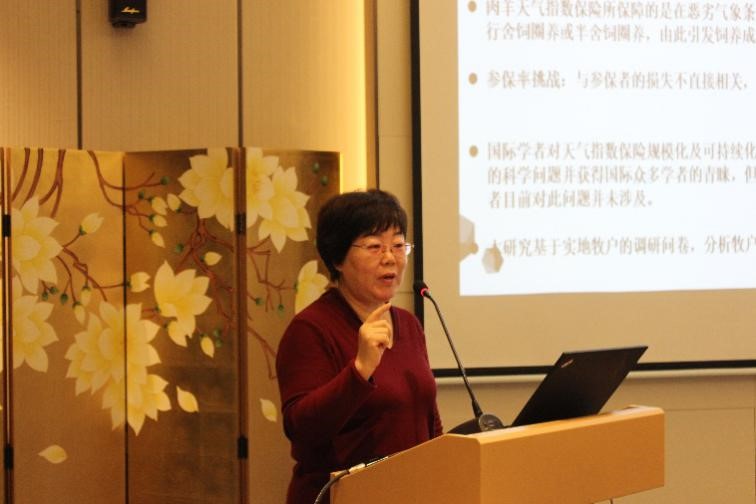
Professor Zhao Yuanfeng speaking
Li Tong, a PhD Candidate at the School of Public Affair at Zhejiang University, studies the influence of cognitive ability on the decision-making of the new agricultural insurance, and finds that there is an inverted U-shaped relationship between the two factors. This effect is more obvious in young/middle-aged and high cognitive groups. In addition, cognitive ability affects not only the possibility of individual insurance purchase, but also the degree of the purchase, that is, the monetary amount of annual purchase. Besides, the marginal effect of cognitive ability on insurance is affected by family risk attitude.
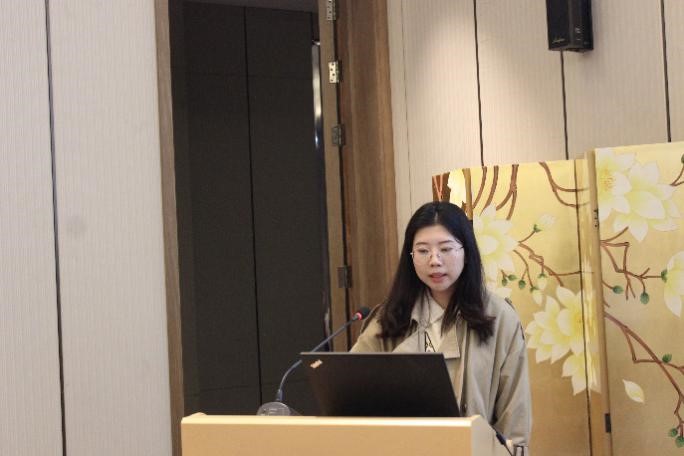
The PhD Candidate Li Tong speaking
Associate Professor Zhang Xiang, from the School of Public Affairs at Zhejiang University, finds that the life expectancy of the former land-expropriated farmers' endowment insurance group who have been transferred to workers' old-age insurance through an one-time payment is longer than that of those who do not transfer to employment insurance. As the data informs, medical expenditure has a significant negative impact on farmers’ reinsurance behavior, and the incidence and mortality of serious diseases in the reinsured group are significantly lower than those in the non-reinsured group. As a result, healthy people are more likely to change to employment insurance. It also leads to longer life expectancy of the reinsured group and creates more pressure on the occupational insurance fund. Nevertheless, this conclusion still requires to further eliminate the interference of income factors.
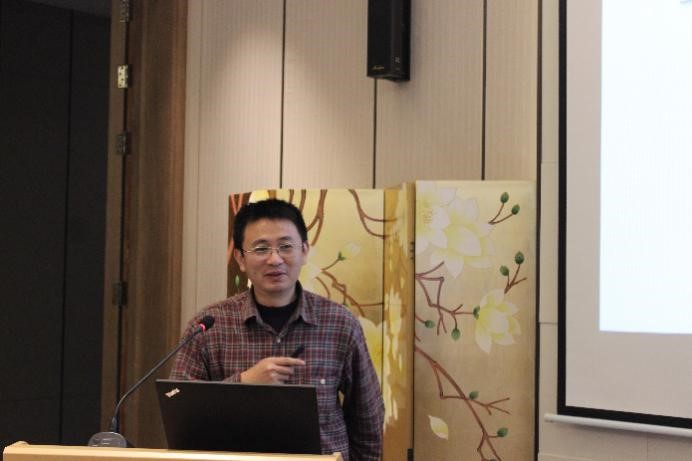
Associate Professor Zhang Xiang speaking
The 2020 Forum of Insurance and Welfare was a great success.


